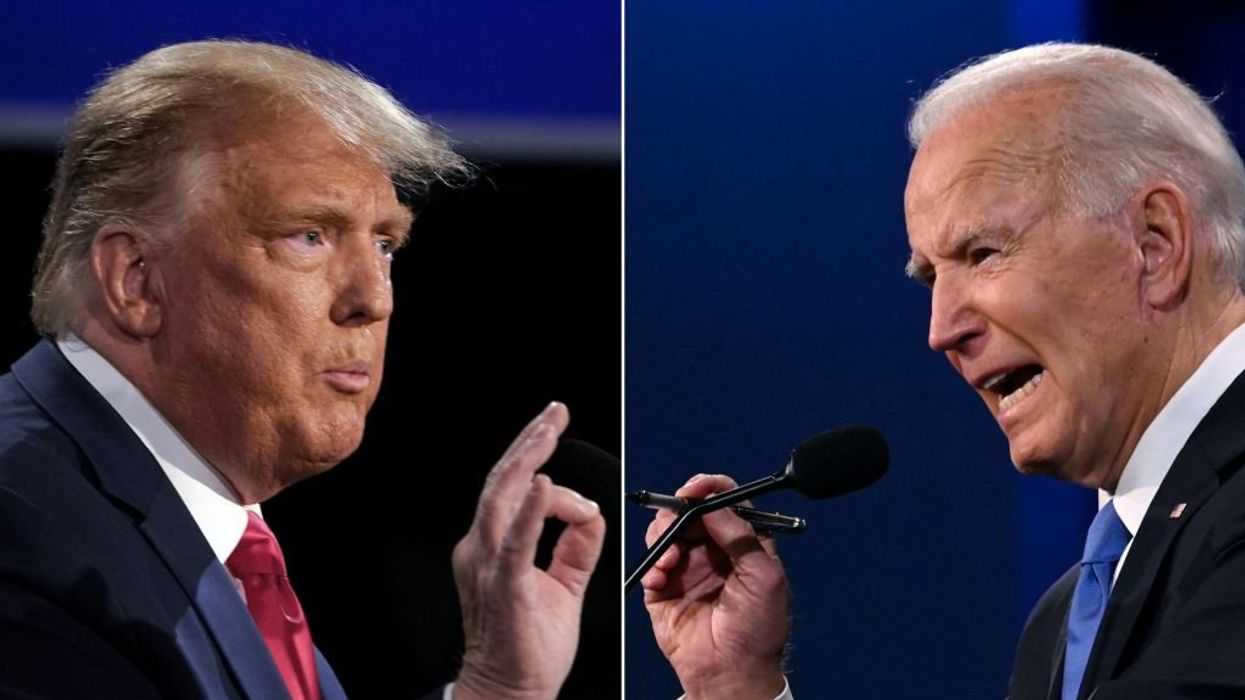
© 2024 Blaze Media LLC. All rights reserved.
Texas primary: The good, the really good, and the warning
March 07, 2018
Yesterday, Conservative Review asked five questions about the Texas primary elections. Now that the votes are counted, we have some answers and some observations about where we are headed in the 2018 midterms.
The first and most important lesson is that Texas should never be a close call for Republicans. if Democrats were hoping the primary results and voter turnout would be a harbinger of increased viability in the Lone Star state up and down the ballot, they should be thoroughly disappointed. To be clear, Democrats did outperform their showing in recent years, and clearly, their high level of engagement will hurt Republicans in states that are genuinely more competitive. But as Sen. Ted Cruz, R-Texas, taunted his general election opponent, “If you're gonna run in Texas, ya can't be a liberal man." Texas ain't going anywhere into the blue column any time soon, and there are no signs that Ted Cruz is vulnerable or that House seats could flip.
Here are six important observations from last night:
1. Ted Cruz had an excellent night: Nobody ever doubted that Ted Cruz would easily win and avoid a runoff in his primary, but he racked up an impressive 85 percent of the vote, despite several challengers who had some campaign cash. Often, no-name opponents of even safe incumbents get 20-25 percent of the vote in the primary. Cruz garnered over 1.3 million votes last night, topping his performance in the 2016 presidential primary and dwarfing senior Senator John Cornyn's 781,000 total in 2014. Texas Republicans clearly love Cruz. Remember, John Cornyn only got 59 percent of the vote in the 2014 primary, and his primary challengers had even less money.
2. Beto O'Rourke is the new Wendy Davis: Despite all of the hype about Congressman Beto O'Rourke, D-Texas, giving Cruz a run for his money in the Senate race, all he can do is fundraise, which is never a tough feat for progressives. More money does not mean more votes.
Even with a super-energized base, he only got 641,000 votes, less than half of Cruz's total. Thirty-eight percent of Democrats voted for no-name primary challengers who literally didn't have a penny to their names, while O'Rourke raised an unfathomable $9 million. He dramatically underperformed in rural areas, downright losing a number of counties, and only garnered 57 percent even in Dallas. Even Wendy Davis received 78 percent statewide in her 2014 Democrat primary for governor.
3. Overall turnout is up for Democrats, but not enough to win in Texas: Overall turnout for Democrats increased over 80 percent from 2014. But remember, it was Republicans who were rampaging against the status quo in 2014 and the Democrats who had no narrative that year. And still, GOP turnout is 15 percent higher than it was even in 2014. That is pretty impressive given the fact that there were no major statewide competitive GOP primaries and only a smattering of competitive open seats for Congress and state legislature.
Overall, the voter split last night was still 60-40 GOP. It clearly won't be enough for Democrats to change anything in Texas, but it is a warning for Republicans in light red and swing districts and states – where the pool of GOP voters is much smaller than in Texas at large – that they need a competing narrative to energize conservatives and win over independents to combat Democrat enthusiasm.
4. Chip Roy wins! Chip Roy, a friend of many conservative warriors and personally endorsed by CR's Daniel Horowitz, won in district 21 with 27.1 percent, almost twice the number of his new runoff opponent, Matt McCall. That is very impressive for an 18-man free-for-all election. He raised more money than his opponents, but not so much more that money would solely explain his impressive win.
5. Democrat voters bucked the establishment: In a rebuke of the attempt by the Democratic Congressional Campaign Committee (DCCC) to interfere in the primary, Democratic voters helped staunch progressive Laura Moser qualify for the runoff in Texas' 7th Congressional District. Moser, who is running a Bernie Sanders-style campaign, raised more than $130,000 last month after the DCCC dropped opposition research against her to quash her candidacy.
With the fierce backing of progressive activists, Moser managed to finish second with 24 percent of the vote and earn her place in the primary runoff, which will take place on May 22. Democrats believe they have a good chance to flip this House seat, currently occupied by Rep. John Culberson, R-Texas, after Hillary Clinton won the district in 2016. Expect intense intra-party warfare to play out over the next six weeks as the DCCC tries to keep a candidate who is too liberal to win from getting the nomination.
6. Democrats have an uphill battle to flip House seats in Texas: While Democrats never anticipated winning statewide, they hoped the turnout would be strong enough to possibly flip several House seats. The problem is that, as we saw with O' Rourke's numbers statewide, money and party support doesn't buy you love. A lot of candidates with tons of money and support from the DCCC lost their primaries to no-name progressives who are too liberal to win in Texas. With the exception of TX-23 (Rep. Will Hurd), the perennial swing district in the state, it's hard to see Democrats winning more seats.
But here's the key thing: That Democrats may not win in Texas does not mean they can't win in purple states. What we saw Tuesday is a record level of Democratic energy in a state where there are not very many Democrats. If this energy is consistent in purples states like Pennsylvania, we could see many milquetoast Republican candidates overwhelmed by enthusiastic progressives looking to #Resist President Trump. Watch next week's special election in Pennsylvania's 18th Congressional District very closely. We may see a combination of a lackluster GOP candidate and Democrat voter enthusiasm turning what should be a safe GOP seat blue.
Democrats need to win 33 seats to flip the House of Representatives and make Nancy Pelosi the speaker of the House again. There are lots of purple states. Tuesday's primary in deep-red Texas did not definitively prove they can't do it. If Republicans are willing to gamble control of Congress on an impotent agenda for the remainder of the year, their odds of winning contested territory are very slim.
Want to leave a tip?
We answer to you. Help keep our content free of advertisers and big tech censorship by leaving a tip today.
Want to join the conversation?
Already a subscriber?
Blaze Podcast Host
Daniel Horowitz is the host of “Conservative Review with Daniel Horowitz” and a senior editor for Blaze News.
RMConservative
more stories
Sign up for the Blaze newsletter
By signing up, you agree to our Privacy Policy and Terms of Use, and agree to receive content that may sometimes include advertisements. You may opt out at any time.
© 2024 Blaze Media LLC. All rights reserved.
Get the stories that matter most delivered directly to your inbox.
By signing up, you agree to our Privacy Policy and Terms of Use, and agree to receive content that may sometimes include advertisements. You may opt out at any time.




